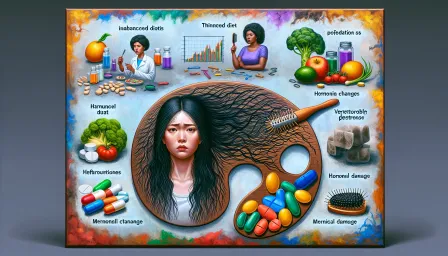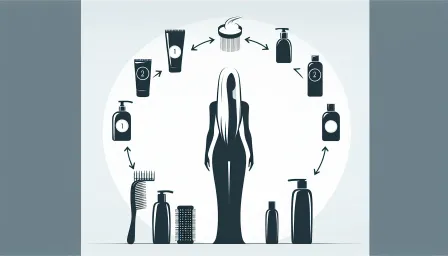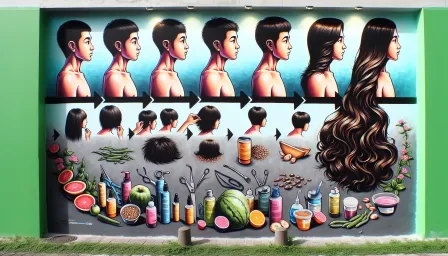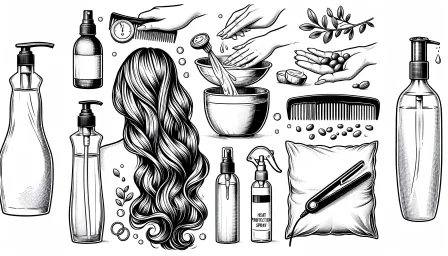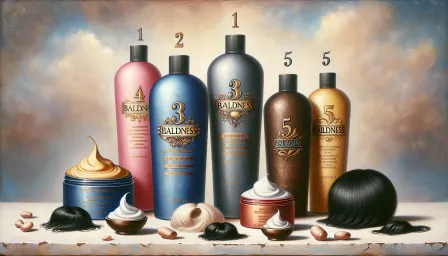Top 10 Foods in a Thinning Hair Diet for Improvement

Discover the top 10 foods in a diet designed for thinning hair improvement. Learn how these superfoods can help you combat hair loss and promote healthier hair growth.
Thinning hair can be a distressing problem for many people. Fortunately, adopting a strategic diet can help address this issue. This article will guide you through the top 10 foods to include in a thinning hair diet for improvement. By incorporating these nutrient-rich foods into your daily meals, you can promote healthier hair growth and reduce hair thinning effectively.
Introduction
Hair health is closely connected to overall nutrition. While genetics, hormones, and environmental factors play significant roles in hair loss, following a well-balanced diet can substantially mitigate thinning hair. The right foods can provide essential nutrients that support hair growth, strengthen hair follicles, and maintain scalp health. Let's delve into the top 10 foods that should be part of your thinning hair diet for improvement.
1. Eggs
Biotin and Protein
Eggs are an excellent source of biotin, a B vitamin crucial for hair growth. Biotin helps produce keratin, the protein that makes up hair structure. Additionally, eggs are rich in high-quality protein, necessary for repairing and building hair tissues.
2. Spinach
Iron and Vitamins
Spinach is packed with iron, which helps red blood cells carry oxygen to hair follicles, promoting hair growth. It also contains vitamins A and C, which assist in the production of sebum, the scalp's natural oil essential for healthy hair.
3. Sweet Potatoes
Beta-carotene and Vitamin A
Sweet potatoes are rich in beta-carotene, which is converted into vitamin A in the body. Vitamin A encourages the production of sebum, keeping the scalp healthy. It also promotes cell growth, an essential factor for hair growth.
4. Salmon
Omega-3 Fatty Acids
Salmon is high in omega-3 fatty acids, which are vital for maintaining scalp health and reducing inflammation that can contribute to hair loss. Omega-3s also keep hair hydrated and strong.
5. Nuts and Seeds
Zinc and Vitamin E
Nuts and seeds, such as almonds and sunflower seeds, are rich in zinc and vitamin E. Zinc supports hair repair and the proper functioning of oil glands around hair follicles, while vitamin E improves scalp circulation and oxygenation.
6. Avocados
Vitamin E and Healthy Fats
Avocados are loaded with vitamin E, which enhances blood circulation and supports follicles' health. They also provide healthy fats that nourish the hair and scalp, preventing dryness and breakage.
7. Beans and Lentils
Protein, Iron, and Biotin
Legumes like beans and lentils are excellent sources of plant-based protein, iron, and biotin. These nutrients play a crucial role in maintaining healthy hair growth and strengthening hair strands.
8. Greek Yogurt
Protein and Vitamin B5
Greek yogurt is rich in protein and vitamin B5, also known as pantothenic acid. B5 helps improve blood flow to the scalp and promote hair growth. It's also known to prevent hair thinning and loss.
9. Berries
Antioxidants and Vitamin C
Berries, such as strawberries and blueberries, are high in antioxidants and vitamin C. Antioxidants protect hair follicles from damage, while vitamin C aids in collagen production, essential for maintaining hair structure.
10. Oysters
Zinc and Protein
Oysters are a potent source of zinc and protein. Zinc is vital for hair tissue growth and repair, and it helps keep the oil glands around follicles functioning properly. A deficiency in zinc can lead to hair loss and poor scalp health.
Conclusion
Integrating these nutrient-dense foods into your daily meals can significantly improve hair health and combat thinning. Remember that balanced nutrition, along with proper hair care, plays a crucial role in maintaining healthy hair growth. By following a thinning hair diet for improvement, you can nourish your hair from the inside out, promoting strength, volume, and overall health.
Make sure to consult with a healthcare provider or a nutritionist for personalized advice tailored to your specific needs. With a well-rounded approach, you can tackle the challenges of thinning hair effectively.




